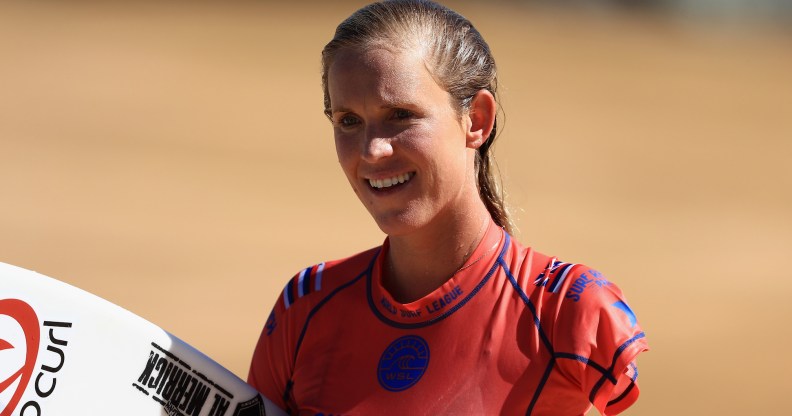Surfer Bethany Hamilton denounces trans inclusion in women’s sport as Rip Curl faces backlash

Pro surfer Bethany Hamilton has previously criticised trans inclusion in women’s sport. (Getty)
Professional surfer Bethany Hamilton has denounced trans inclusion in women’s sport after sportswear firm Rip Curl celebrated a trans athlete on its social media.
Rip Curl posted images featuring trans surfer Sasha Lowerson on social Thursday (25 January), as part of its Meet the Local Heroes of Western Australia campaign – and was then faced by an intense backlash akin to that Bud Light faced over a social media post with trans influencer Dylan Mulvaney last year.
Lowerson was described as a “West Australian water-woman who loves the freedom found in surfing, disconnecting from the mainstream and the feeling of dancing on constantly changing waves”.
Her photos have since been removed from Rip Curl’s social media platforms.
An ambassador for Athlete Ally, Lowerson has previously spoken out about the difficulties she face, saying: “It may not be easy, but it’s possible to be an openly trans athlete and be a spokesperson for what is right.”
Rip Curl’s social media post was criticised by opponents of trans inclusion in sport, including outspoken former college swimmer Riley Gaines, who claimed it showed “contempt for women”.
Meanwhile, Hamilton, who lost her left arm in a shark attack 20 years ago, wrote on Twitter/X: “Male-bodied athletes should not be competing in female sports. Period.”
The American surfer has previously threatened to pull out of the World Surf League over its trans athlete policy, which at the time (February 2023) mandated that transgender women could compete in the women’s division provided their testosterone stayed below a certain level.
“I won’t be competing in, or supporting, the World Surf League if this rule remains,” Hamilton said at the time, and proposed a “different division [for trans athletes] so that all can have a fair opportunity to showcase their passion and talent”.
Hamilton’s criticism comes as a number of sport governing bodies, such as Swim England, UK Athletics and USA Cycling, have either restricted the participation of trans athletes, or banned them from women’s teams altogether.
In addition, 24 states across the US, including Texas, Florida and Tennessee, have passed bans on transgender students participating in sports consistent with their gender identity.
A judge in Arizona temporarily blocked a ban last year, ruling that trans children will “suffer severe and irreparable mental, physical and emotional harm” if they are forced to play on sports teams that don’t match their gender identity.

